Money and 7 symbols of Belarus
There was a denomination of Belarusian currency done on July 1, 2016. 4 zeros were taken off the currency number value, and not everyone was a millionaire anymore. The general concept of the new notes introduced after the denomination is “Belarus is my country.” 7 banknotes depict 7 Belarusian regions and 7 architectural symbols: 5 rubles is dedicated to Brest region, 10 rubles to Vitebsk region, 20 rubles to Gomel region, 50 rubles to Grodno region, 100 rubles to Minsk region, 200 rubles to Mogilev region, and 500 rubles to the city of Minsk.
New Belarusian money has already become a kind of guide to the country for foreign visitors. If you plan to visit Belarus using 5 days visa free opportunity learn more about this clicking this link. It may sound like a little offbeat to make a travel itinerary out of pictures on money, but here you go:
5 rouble note: Kamenets Tower, Kamenets town
Kamenets Tower is one of the most famous attractions of Belarus and in some ways even a hallmark of the country. It is a fortified 30 meter high tower, built in the late 13th century on the northern border of Volhynia. This defensive tower is one of the oldest surviving stone structures on the territory of Belarus and the only of this kind. The thickness of the walls is up to 2.5 meters, while the outer diameter of the tower is 13.5 meters at the base. In Soviet times, it was believed that the ancient Kamenets Tower was painted white. Therefore, in the 1950s, it was even given the "original" look and whitewashed. That’s when the tower got its name that persists up to this day, having become a very strong brand.
How to get there:
The distance from Minsk to Kamenets is 357 kilometres. Travel time is about 4 hours. I would advise you to get to Kamenets by car. As it is quite far from Minsk but very close to Brest (about 40 kilometres), you can visit Kamenets as a part of your trip to Brest and Brest region. Learn more about one thing to do in Brest clicking this link.
10 rouble note: Transfiguration Church in Polatsk
Transfiguration Church of the St. Euphrosine monastery is a well-preserved monument of Pre-Mongol Russsian architecture. It was built in the middle of the 12th century by the order of Princess St. Euphrosyne of Polatsk as a cathedral church of the Convent of the Saviour and St. Euphrosyne. In 1582, King Stefan Batory gave the church to the Order of Jesuits. In 1832, the church was placed under the Orthodox administration, and in 1990 it became a property of the Belarusian Exarchate. In the 19th century it was partially remodeled, according to the design by architect A. Port. The church is a stone-made, 3-nave, 6-pillar cruciform building with a domed roof, the dome rising on a high tambour. Restorers have discovered some frescoes of the 12th century in the Church. This is the only monument of the 12th century in Belarus where frescoes are almost completely preserved. Read more about places of worship to visit in Belarus clicking this link.

The distance from Minsk to Polatsk is 230 kilometres. Travel time is about 3 hours. Public transport is very convenient, especially minibuses. There is much more to see in Polatsk and it can be done as a day trip from Minsk or you may extend your sightseeing trip to Vitebsk.
20 rouble note: Gomel Palace
The large Gomel palace in Neo-Classicism style, with Empire style interior was built in the end of the 18th century. The first owner of the palace was of Field Marshal Pyotr Rumyantsev. The monument in front of the palace is to count Nikolai Petrovich Rumyantsev (1754-1826), Russia's Foreign Minister and Chancellor of the Russian Empire, one of the owners of the residence. The grounds of the residence with English-style park stretch for 800 meters along the steep right bank of the Sozh River. An image of the residence was also featured on the Belarusian 20,000-ruble bill in circulation before denomination.

The distance from Minsk to Gomel is 310 kilometres. Travel time is about 3,5 hours. Public transport is very convenient, especially minibuses. I would recommend staying overnight in Gomel if travelling from Minsk. From other things to see in Gomel, I would like to note the magnificent wooden architecture of old dwelling houses with carved window decorations.
50 rouble note: Mir Castle
The Mir Castle is truly the pearl of Belarusian architecture. In its 500 years of history, the castle has experienced many moments of decline and revival and is today a national monument and the Art Museum of Belarus. It’s included in the list of UNESCO World Heritage Sites. The Mir Complex includes castle ramparts, an English landscape park, an Italian garden reconstruction, a pond, a chapel-tomb of Svyatopolk-Mirsky, a guard's house and a roadside chapel. Unique pieces of furniture, weapons and tapestries can be found among museum exhibits.
The construction of the castle as a family residence was started in the 16th century. It was initially a small square fort with four towers at the corners, and the fifth – on the entrance gate. In the late 16th century castle was passed on to Polish-Lithuanian nobleman Nicholas Radziwill. Radziwill began the second phase of construction. The whole structure was turned into a palace. A beautiful park was set up around the palace, following the examples of Schönbrunn Palace, Mirabell, Versailles, and others.
In 1891, the estate with the castle was bought by Prince Svyatopolk-Mirsky, Ataman of the Don Cossack Army. During the Second World War, the castle was turned into a ghetto, and the villagers settled there in the post-war years. It was only in 1987 that the Mir Castle was restored and opened as the National Art Museum of Belarus.

The distance from Minsk to Mir Castle is about 100 kilometres. Travel time is a bit less than 1,5 hours. I would recommend doing this as a day trip from Minsk and also including the Nesvizh Palace in the same trip as they are located quite close to each other.
100 rouble note: Nesvizh Palace
Nesvizh Palace is one of the most beautiful sights of Belarus. It served as the residence of the richest family of the Grand Duchy of Lithuania – the Radziwills. The magnificent palace with a large landscape park is listed as a UNESCO World Heritage Site. The Nesvizh Palace is a complex of buildings that combine many architectural styles from Renaissance and Baroque to Art Nouveau and Neoclassical.
The Radziwill family owned vast land properties on the territory of modern Belarus. At the end of 16th century Radziwill the Orphan ordered the building of a new castle, worthy of the name and the title of the Radziwill family. The construction began under the command of Italian architect Giovanni Bernardoni. In 1706 it was conquered by the troops of Charles XII. The Swedes blew up the defensive bastions and the property was looted. The castle was rebuilt in the middle of the 18thcentury by architect Zhdanovich.
The power of the Radziwill family fell with the arrival of Napoleon. A further change of owners, robbery, wars and rebellions led to the ruin of the castle of Nesvizh. After World War II, the castle was adapted to a resort, the park fell into neglect. In 2004, restoration works began, and in 2011 Nesvizh was opened as a Historical and Cultural Museum-Conservancy "Nesvizh". Read more about castles, palaces and mansions of Belarus clicking this link.
How to get there:
The distance from Minsk to Nesvizh Palace is about 120 kilometres. Travel time is about 1,5 hours. The Nesvizh Palace is just one of the sights to see in Nesvizh, and if you are planning a trip you should also visit: Nesvizh Benedictine Monastery, Farny Polish Roman Catholic Church (16th century Baroque), and Nesvizh town square. I would recommend doing this as a day trip from Minsk and also including Mir Castle in the same trip, as they are located quite close to each other.
200 rouble note: Mogilev Art Museum
The Mogilev (Mahileu) Regional Art Museum named after Pavel Maslenikov is not only the guardian of some masterpieces of the 17th-19th centuries but also an architectural gem. The building of the farmers’ land bank now housing museums and offices was built in the early 20th century. The design harmoniously combines modern, Neo-Russian style and late Classicism. In 1994, artist Pavel Maslenikov donated to the city of Mogilev 125 works of art. This gift became the basis of the Mogilev Regional Art Museum named after him.
How to get there:
The distance from Minsk to Mogilev is about 200 kilometres. Travel time is about 2,5 hours. It can be easily reached by public transport. Don’t forget to visit the Starwatcher Statue when in Mogilev.
500 rouble note: The National Library of Belarus
Viktor Kramarenko and Michael Vinogradov designed the 23-storey National Library of Belarus as a gigantic diamond. It’s a symbol of the precious knowledge stored in the books within. It was completed in 2006. It’s worth visiting at least for two reasons. Firstly, it hosts a museum of rare books, e.g. original books of Francysk Skaryna, an outstanding personality in the Belarusian history. His sculpture is placed next to the library building. The exposition hosts 10 originals of the Bibles published in the early 16th century. The second reason for visiting the library is the viewing platform on top of the building offering great views of Minsk. Read more about what to do in Minsk clicking this link.

It is easy to visit by public transport when in Minsk.
Have you been to Belarus? Share your impressions in the comments section!

- Published by Anita on May 29, 2017
Author: Anita Sāne
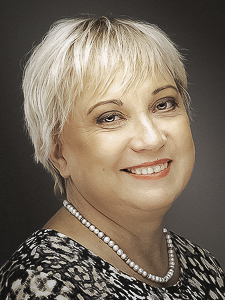
About the author
Anita is a part-time traveller, passionate photographer and a retired career woman from Latvia, travelling mostly solo for more than 15 years. She is a skilled travel planner who plans and executes her travels by herself. Anita wants to show you how to travel the world and open your mind to new experiences. Follow her on Facebook, Instagram, Pinterest, Twitter and Bloglovin.
{module Sign for my blog news! (2)}

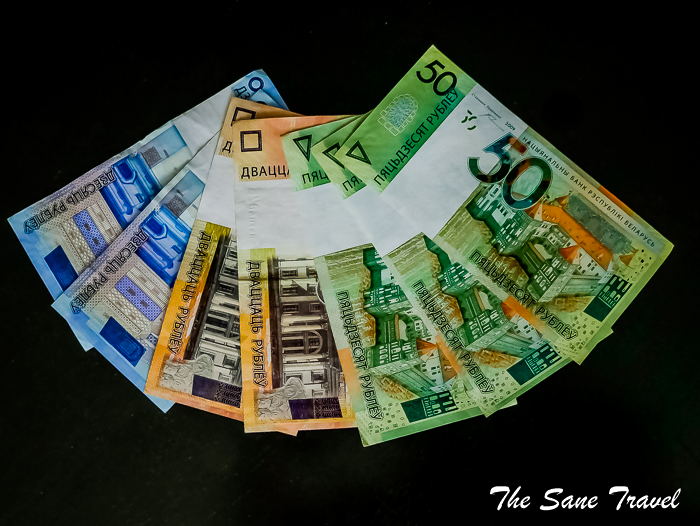



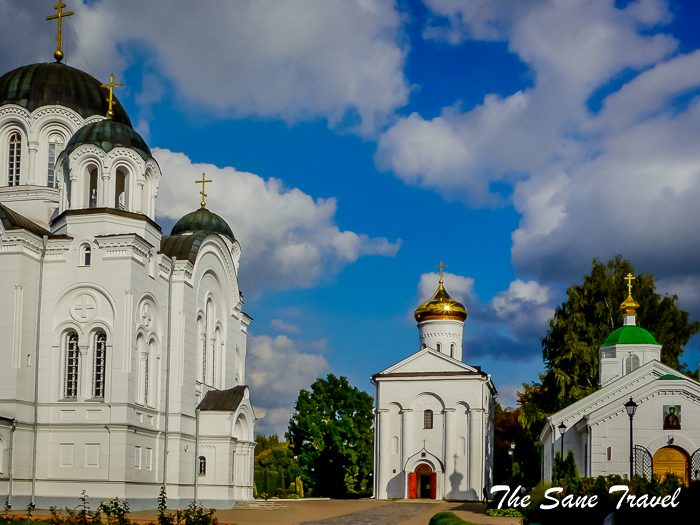
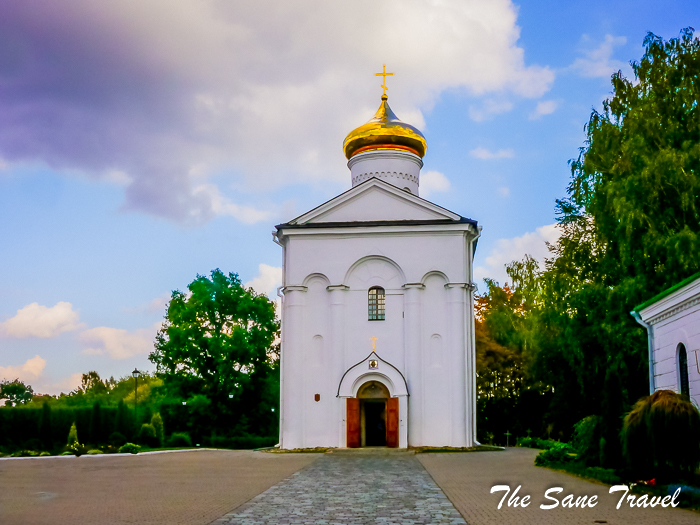


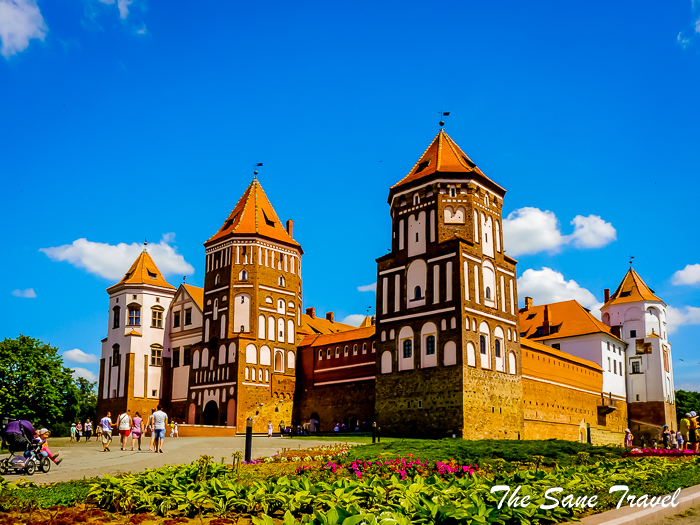



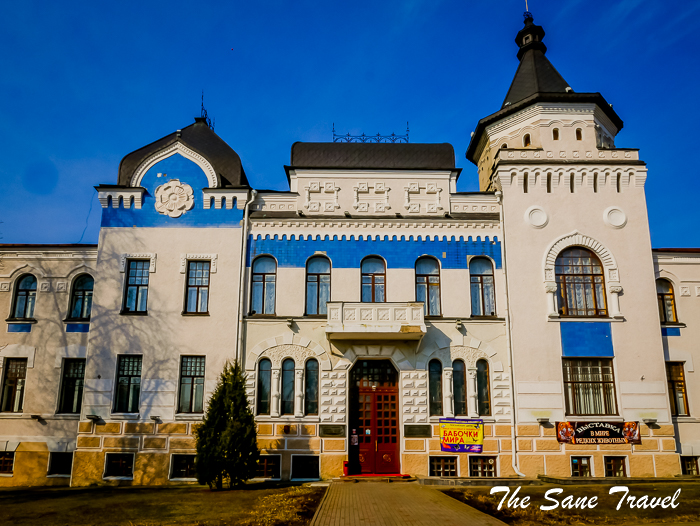























Report
My comments